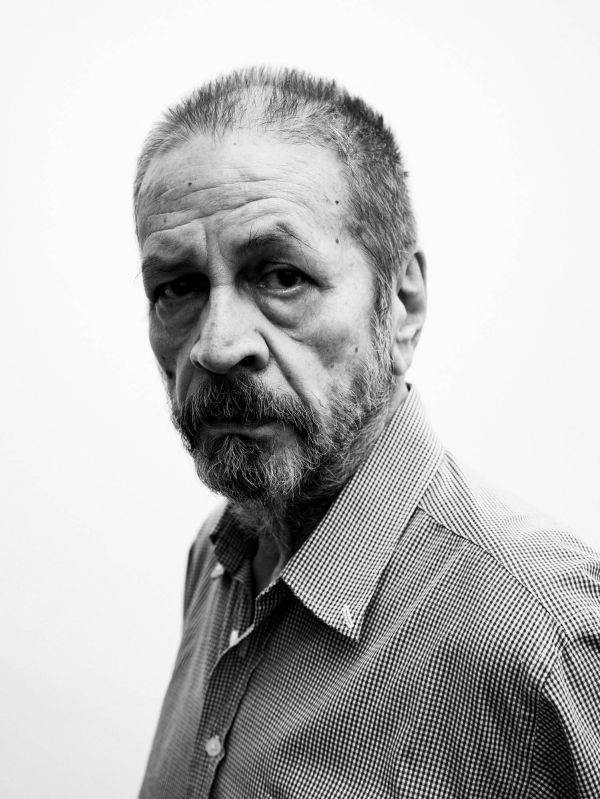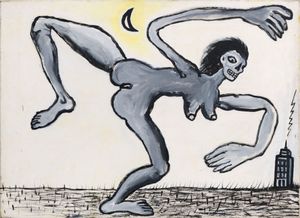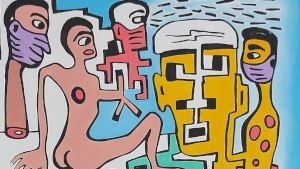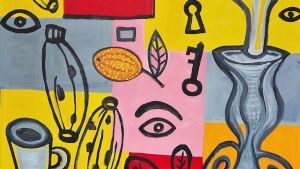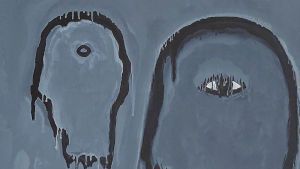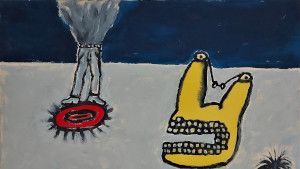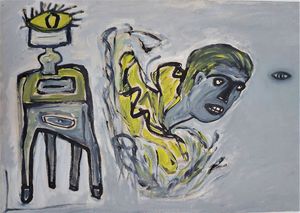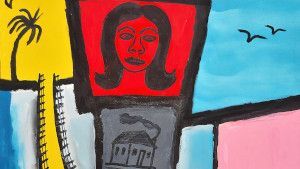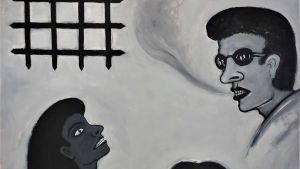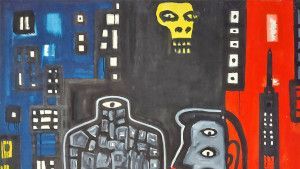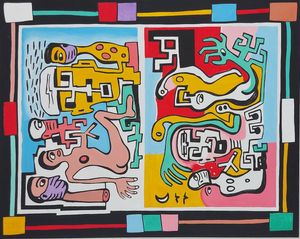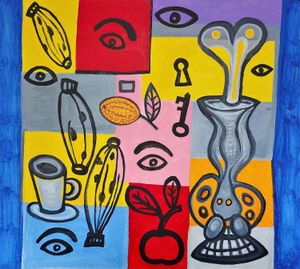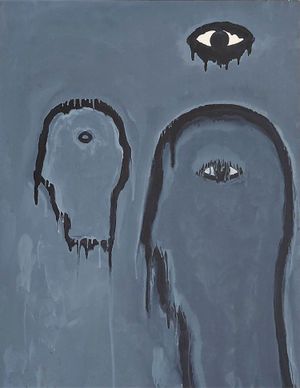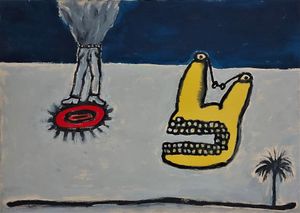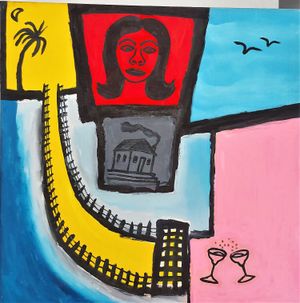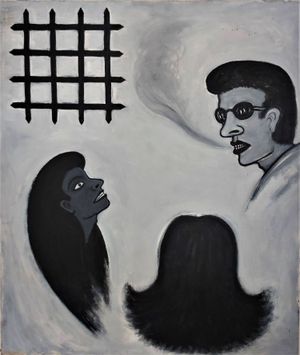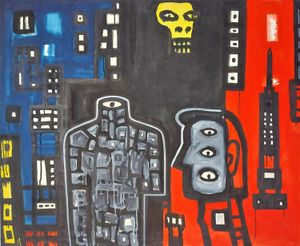Draftsman, engraver and painter, born in Mato Grosso, with over 40 years of artistic career, Victor Arruda stood out for creating the Tato e Contacto group, responsible for setting up the first Free Art workshop for children, at Funabem.
With an extensive production in almost 50 years of career, Arruda's work condenses multiple references and influences that refer to different moments and trends throughout the History of Art, condensed and amalgamated always effectively, in the construction of a unique and unmistakable style.
In his painting, often presenting a poetic scathingly and rawly stated, he elaborates a fierce criticism against hypocrisy, abuse of power and the disguised presence of prejudices towards gender issues in Brazilian society.
Arruda says that a critical moment in his career occurred in the 1970s, when, at just over 20 years old, he decided to face prejudices against homosexuality rooted in Brazilian society. Questioning conservative and sexist attitudes, he decided that his painting would be a reaction against these postures.
In 1989, he painted the panel in the foyer of the Memorial da América Latina theater, at the invitation of Oscar Niemeyer. Among his most recent exhibitions, the following stand out: 1993, Museum of Modern Art in Rio de Janeiro; 2000, Anna Maria Niemeyer Gallery and Paço Imperial, Rio de Janeiro.
He participated in several exhibitions of Brazilian art abroad, such as the Bienal Internacional de Cuenca (Ecuador, 1989), the Bienal Internacional de Arte de Valparaíso (Chile, 1994) and Arco, the International Contemporary Art Fair in Madrid (Spain, 2000).
"Temporal", an impactful retrospective of his work curated by Adolfo Montejo Navas, exhibited at the Paço Imperial in Rio de Janeiro in 2022, reveals a strong and consistent poetics that is not rigid and resists the test of time. In his paintings, drawings and even experiments with other modalities, such as performances, the false moral fallacies of his time are unmasked, becoming the story of an era, but also pointing to a silent permanence of prejudices.
